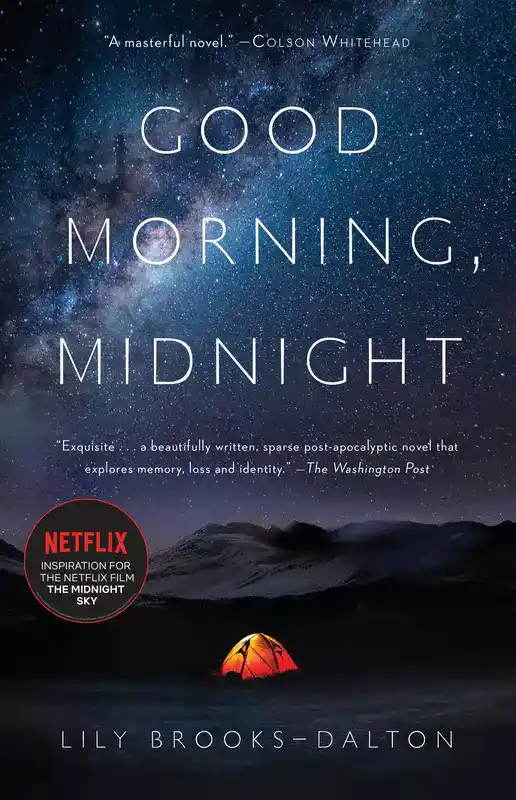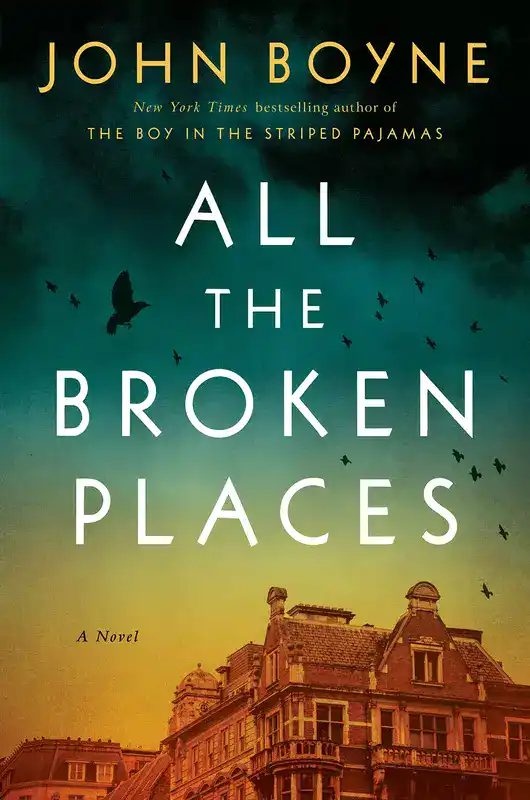This post may contain affiliate links. Read more here.
Book club questions for The Light Pirate by Lily Brooks-Dalton delve into themes of survival, resilience, and the consequences of environmental degradation. This novel takes place in a near-future Florida, where rising sea levels and catastrophic weather patterns have caused widespread destruction. Through the eyes of Wanda, a luminous child born during a powerful hurricane, Brooks-Dalton explores what it means to adapt to a rapidly changing world and the importance of community and purpose in the face of loss and tragedy.
As Florida continues to unravel, Wanda loses family, gains community, and seeks adventure, love, and purpose in a place remade by nature. Told in four parts – power, water, light, and time – the novel mirrors the rhythms of the elements and the dissolution of the world as we know it.
“The Light Pirate” has received widespread critical acclaim and recognition, with accolades including a New York Times Editors’ Choice and a “Book We Love” from 2022 NPR. The Washington Post’s Charlie Jane Anders called it “proof that climate fiction is maturing, producing works that are both nuanced and nourishing.”
Kirkus praised the book as a “vividly individual experience” of climate disaster, and Marie Claire noted its similarity to Delia Owens’ “Where the Crawdads Sing.” With its combination of beauty, heartbreak, survival, and loneliness, “The Light Pirate” is a haunting melody of nature that will stay with you long after you finish reading.
These book club questions for The Light Pirate will explore the stunning plot and expertly crafted characters, as well as the thought-provoking themes that pervade throughout the book. My book club questions contain spoilers, so be sure to read the book before diving into these discussions!
The Synopsis
Florida is slipping away. As devastating weather patterns and rising sea levels wreak gradual havoc on the state’s infrastructure, a powerful hurricane approaches a small town on the southeastern coast. Kirby Lowe, an electrical line worker, his pregnant wife, Frida, and their two sons, Flip and Lucas, prepare for the worst. When the boys go missing just before the hurricane hits, Kirby heads out into the high winds in search of his children. Left alone, Frida goes into premature labor and gives birth to an unusual child, Wanda, whom she names after the catastrophic storm that ushers her into a society closer to collapse than ever before.
As Florida continues to unravel, Wanda grows. Moving from childhood to adulthood, adapting not only to the changing landscape, but also to the people who stayed behind in a place abandoned by civilization, Wanda loses family, gains community, and ultimately, seeks adventure, love, and purpose in a place remade by nature.
Told in four parts—power, water, light, and time—The Light Pirate mirrors the rhythms of the elements and the sometimes quick, sometimes slow dissolution of the world as we know it. It is a meditation on the changes we would rather not see, the future we would rather not greet, and a call back to the beauty and violence of an untamable wilderness.
In love with literature? Try audio books or writing classes
for free for 30 days.✨
Book Club Questions for The Light Pirate
1. What impact do the italicized interludes accompanying each section of the book (power, water, light, and time) have on your understanding of the landscape inhabited by the characters, and how do they influence your thoughts and perspectives?
2. In what ways does THE LIGHT PIRATE’s innovative structure, which unfolds in four parts: power, water, light, and time, mirror the protagonist Wanda’s journey from childhood to adulthood while also exploring the changes taking place in the natural world?
3. How does the novel’s central theme of humanity’s tumultuous relationship with nature and climate change influence the differing coping mechanisms displayed by the characters Frida, Kirby, and Phyllis, and what do these responses make you consider about your own approach to the challenges humanity faces?
4. Do you agree or disagree with Phyllis’s assessment that the world must collapse for a new society to emerge, or for another epoch to have its day, and why?
5. How does Wanda’s relationship with Bird Dog/Brie change and evolve from childhood to adulthood to old age?
6. How does the passage in THE LIGHT PIRATE about Kirby’s confrontation with future instability and the U.S. government’s failure to support Puerto Rico in the aftermath of Hurricane Maria make you feel and think about the ongoing difficulties Puerto Rico faces?
7. What are your thoughts and impressions of Wanda and Bird Dog’s treehouse community on the water presented in the novel’s epilogue, and what did you take away from this glimpse into Wanda’s future?
8. What are your thoughts on the dilemma presented in THE LIGHT PIRATE about navigating wariness and trust in a brutal world, as Phyllis realizes the importance of teaching Wanda to survive the people who remain in Rudder?
9. What are your thoughts on the ongoing debate about whether having children is environmentally responsible in light of the world’s problems, and where do you stand on this issue?
10. How do you reconcile the differences between the twins Corey and Brie/Bird Dog, given their shared childhood?
11. How do you contemplate and prepare for changing landscapes and weather patterns in your life, and how does the author’s depiction of these events shape your thoughts about the planet’s future?
12. How do the Taíno people’s interpretation of their God of chaos and destruction, Juracán, and the depiction of Hurricane Wanda as an impersonal force impact your thoughts and emotions regarding natural disasters and their consequences?
Additional Recommendations
Hope you enjoyed my book club question for The Light Pirate by Lily Brooks-Dalton! Below you will find more of my book club recommendations.
Good Morning, Midnight by Lily Brooks-Dalton
Augustine, a brilliant, aging astronomer, is consumed by the stars. For years he has lived in remote outposts, studying the sky for evidence of how the universe began. At his latest posting, in a research center in the Arctic, news of a catastrophic event arrives. The scientists are forced to evacuate, but Augustine stubbornly refuses to abandon his work. Shortly after the others have gone, Augustine discovers a mysterious child, Iris, and realizes that the airwaves have gone silent. They are alone.
At the same time, Mission Specialist Sullivan is aboard the Aether on its return flight from Jupiter. The astronauts are the first human beings to delve this deep into space, and Sully has made peace with the sacrifices required of her: a daughter left behind, a marriage ended. So far the journey has been a success. But when Mission Control falls inexplicably silent, Sully and her crewmates are forced to wonder if they will ever get home.
As Augustine and Sully each face an uncertain future against forbidding yet beautiful landscapes, their stories gradually intertwine in a profound and unexpected conclusion. In crystalline prose, Good Morning, Midnight poses the most important questions: What endures at the end of the world? How do we make sense of our lives? Lily Brooks-Dalton’s captivating debut is a meditation on the power of love and the bravery of the human heart.
All The Broken Places by John Boyne
From the New York Times bestselling author John Boyne, a devastating, beautiful story about a woman who must confront the sins of her own terrible past, and a present in which it is never too late for bravery
Ninety-one-year-old Gretel Fernsby has lived in the same well-to-do mansion block in London for decades. She lives a quiet, comfortable life, despite her deeply disturbing, dark past. She doesn’t talk about her escape from Nazi Germany at age 12. She doesn’t talk about the grim post-war years in France with her mother. Most of all, she doesn’t talk about her father, who was the commandant of one of the Reich’s most notorious extermination camps.
Then, a new family moves into the apartment below her. In spite of herself, Gretel can’t help but begin a friendship with the little boy, Henry, though his presence brings back memories she would rather forget. One night, she witnesses a disturbing, violent argument between Henry’s beautiful mother and his arrogant father, one that threatens Gretel’s hard-won, self-contained existence.
All The Broken Places moves back and forth in time between Gretel’s girlhood in Germany to present-day London as a woman whose life has been haunted by the past. Now, Gretel faces a similar crossroads to one she encountered long ago. Back then, she denied her own complicity, but now, faced with a chance to interrogate her guilt, grief and remorse, she can choose to save a young boy. If she does, she will be forced to reveal the secrets she has spent a lifetime protecting. This time, she can make a different choice than before—whatever the cost to herself….
Thank you for reading my book club questions and happy reading! ❤️

